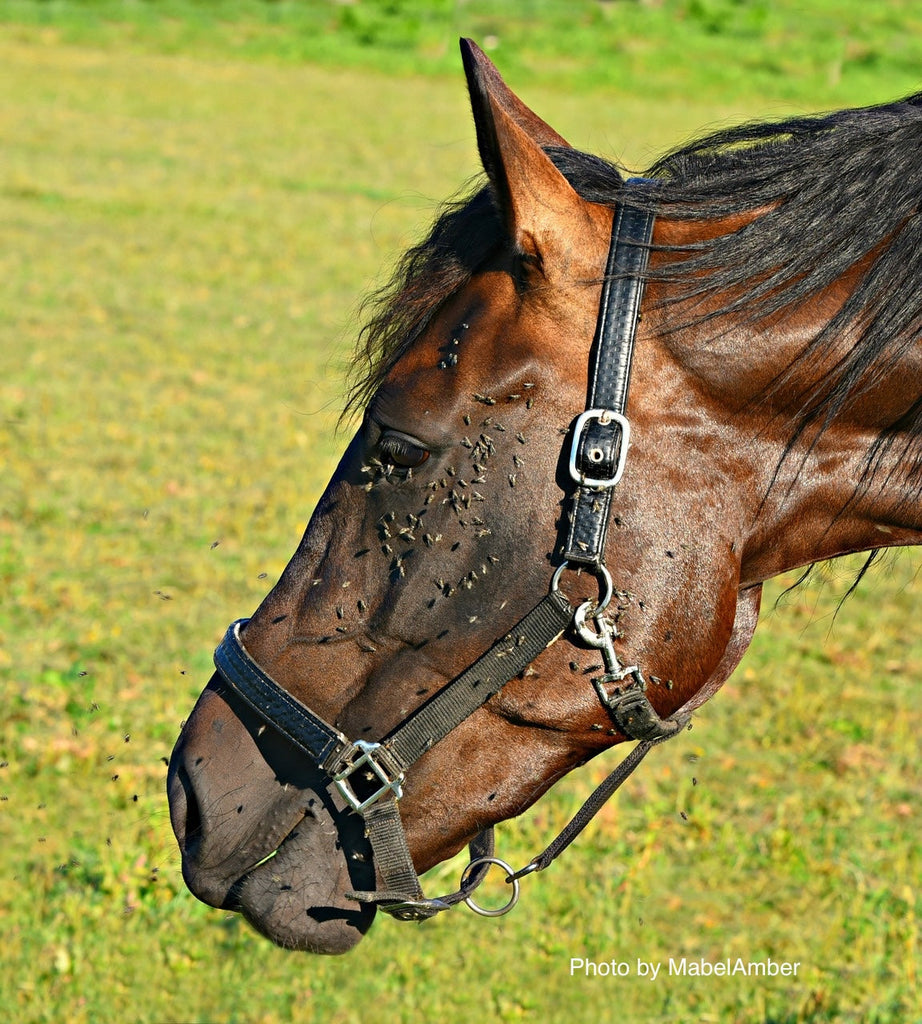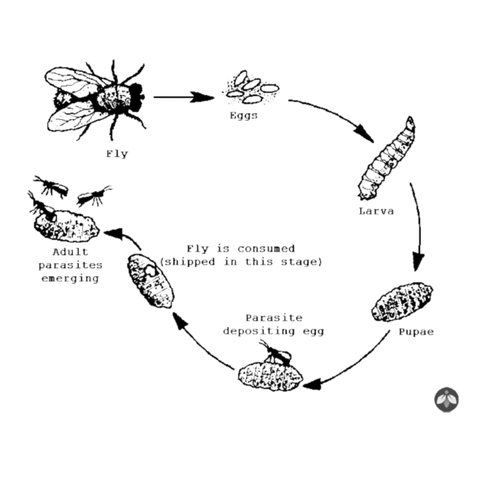Manage Flies Naturally This Season

Biocontrol doesn’t have to stop at the greenhouse. There are many natural enemies raised in insectaries that are used in landscapes, orchards and even for fly control of livestock and farm animals. Nuisance flies on horses and cattle can be a big problem, and fly parasites are raised and sold specifically to help with this.
Fly parasites are tiny parasitoid wasps that attack and lay eggs inside of filth fly pupae. The three wasps that make up the fly parasites are Spalangia cameroni, Muscidifurax zaraptor, and Muscidifurax raptorellus. They can lay up to five eggs inside of one pupa, which is killed as new wasps develop. Since flies reproduce at a faster pace than fly parasites, repeated applications are necessary throughout the summer.

Fly parasites are only part of a complete fly management program. Setting fly traps and good manure management are also important. Fly parasites can travel up to 150 feet from their release points, which should be in the same locations that flies reproduce (manure piles, food waste, compost, etc..). It’s best to release fly parasites before the fly season, giving the fly parasites a chance to attack the developing flies and prevent an outbreak. Keep applying fly parasites every 2-4 weeks, depending on your needs.
We’ll help you evaluate your individual situation and keep you ahead of the flies! For every large animal, you will need approximately 1,000 fly parasites. Once we create a schedule, you can count on us to keep you organized throughout the season. Email or call us today!

Release Rates
Horses--7,500 per every 5 horses, applied every 2 to 4 weeks
Cattle, Bison--7,500 per every 5 animals, applied every 1 to 3 weeks
Goats, Sheep, Dogs--7,500 per every 15 animals, applied every 2 to 4 weeks
Miniatures, Burros--7,500 per every 10 animals, applied every 2 to 4 weeks
Swine--7,500 per every 10 animals, applied every 1 to 2 weeks
Chickens, Turkeys (on wire)--7,500 per every 2,000 birds, applied every 1 to 2 weeks
Ostriches, Emus--7,500 per every 15 birds, applied every 2 to 4 weeks
Llamas, Alpacas--7,500 per every 10 animals, applied every 2 to 4 weeks

(360) 656-6680
info@soundhorticulture.com

Leave a comment